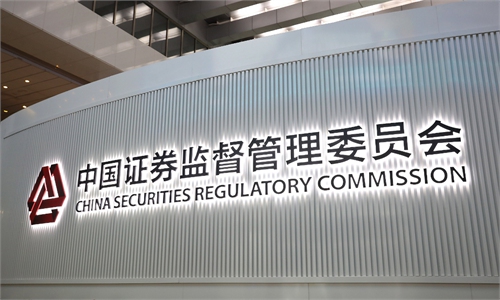China’s securities regulator announces new reform measures for STAR market, stressing investor protection at Shanghai Lujiazui Forum

A view of the Lujiazui area in Shanghai, China. Photo: VCG
China's top securities regulator announced new reforms for China's STAR market at the annual Lujiazui Forum held in Shanghai on Wednesday.
The announcement was made on the five-year anniversary of the launch of the Nasdaq-style sci-tech innovation board in Shanghai, and marks a new beginning for the board to support China’s technology innovation and development of the new quality productive forces.
The China Securities Regulatory Commission (CSRC) will introduce eight measures tied to the STAR market. The reforms will improve the systems and mechanisms for issuance and underwriting, mergers and acquisitions, equity incentives, and trading, and better serve technological innovation and growth of new quality productive forces, according to Wu Qing, head of the CSRC, in his keynote speech at the Forum.
On June 13, 2019, China inaugurated the sci-tech innovation board, a milestone in the country's capital market reform.
As of the end of May, 572 companies had been listed on the board, and total capitalization stood at 5.7 trillion yuan ($785.8 billion), according to financial information provider Wind.
As the board is designed to support companies in high-tech and strategic emerging fields, STAR-listed companies largely come from such industries as next-generation information technology, high-end manufacturing, and biopharmaceuticals.
The CSRC also reiterated efforts to strengthen market oversight, ferret out frauds and better protect the interest of the vast small investors.
Wu stressed that cracking down on financial fraud by listed companies is a consistent priority for regulatory enforcement. The CSRC is working with relevant departments to strengthen regulatory measures, encourage whistleblowers, and hold the intermediaries organs, like the underwriters and auditors, accountable.
Wu emphasized the need to strengthen oversight and regulation of high-frequency quantitative trading and over-the-counter (OTC) derivatives to protect the interests of small investors, Wu said.
He noted that the CSRC's commitment to protecting investors thoroughly investigate and punish any illegal activities in the delisting cases, ensuring that those responsible will be held accountable and deal with according to law.
Wu also stressed the need for listed companies to proactively engage with investors, enhance transparency, and improve corporate governance in order to better reward the investors.

